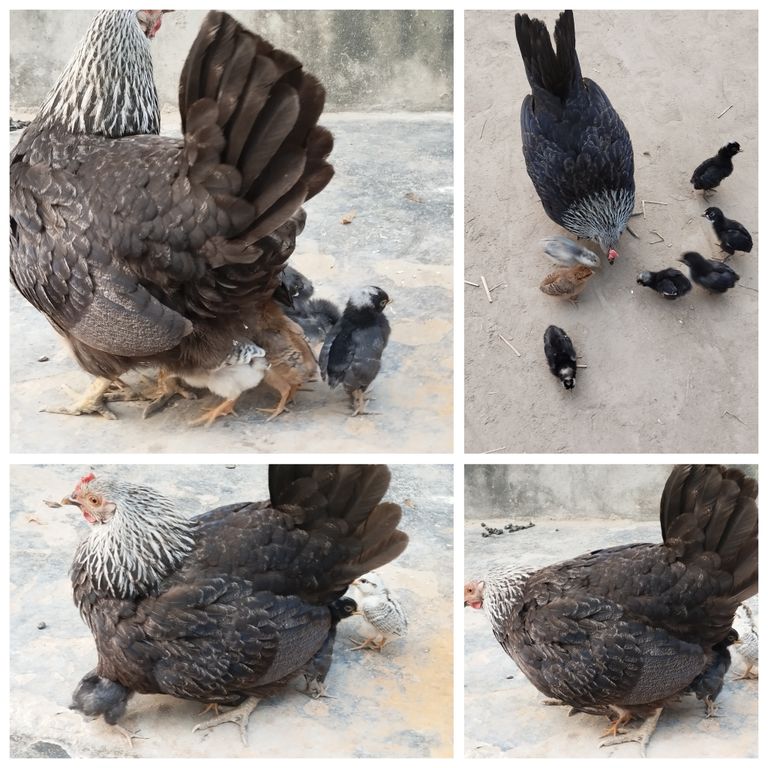
Raising Native Chicken Chicks A Complete Guide.
Raising native chicken chicks can be a rewarding and profitable venture, whether for household consumption or commercial purposes. Native chickens, also known as desi or indigenous chickens, are hardy, disease-resistant, and well-adapted to local climates. Proper care during the early stages ensures healthy growth and high productivity. In this guide, we’ll cover everything you need to know about raising native chicken chicks, from preparation to daily care and disease prevention.
- Preparing for Native Chicken Chicks
Selecting Healthy Chicks
Purchase chicks from a reputable breeder or hatch them from healthy parent stock.
Look for active, bright-eyed chicks with clean feathers and no deformities.
Avoid chicks that seem weak, lethargic, or have swollen joints.
Housing Requirements
A well-structured brooding area is essential for raising strong and healthy chicks.
Brooder Setup: Use a clean, dry, and well-ventilated space for brooding.
Temperature Control: Keep the brooder warm, around 32–35°C (90–95°F) for the first week, then gradually reduce the temperature by 2–3°C per week until it reaches the ambient temperature.
Bedding: Use dry straw, wood shavings, or rice husks as bedding. Change bedding regularly to maintain hygiene.
Lighting: Provide 24-hour lighting for the first few days, then reduce to 12–14 hours daily.
- Feeding and Nutrition
Proper nutrition is crucial for the growth and development of native chicken chicks.
Feeding Schedule
First Week: Provide chick starter feed with 18–22% protein to support rapid growth.
2–4 Weeks: Continue chick starter feed, gradually introducing grains, greens, and kitchen scraps.
5–8 Weeks: Shift to grower feed with 16–18% protein while allowing free-range grazing if possible.
After 8 Weeks: Introduce layer or finisher feed, depending on the purpose (egg-laying or meat production).
Supplementary Feeds
Crushed maize, rice bran, and wheat bran improve digestion.
Green vegetables, kitchen scraps, and earthworms provide natural nutrients.
Calcium sources like crushed eggshells and limestone support strong bone and eggshell development.
Providing Clean Water
Always provide fresh, clean water.
Use shallow water containers to prevent drowning.
Add electrolytes or vitamins to water, especially during hot weather.
- Health and Disease Prevention
Native chickens are generally hardy but still require proper care to prevent diseases.
Common Diseases and Prevention
- Newcastle Disease – Prevent with timely vaccination.
- Coccidiosis – Avoid damp bedding and provide medicated feed if needed.
- Fowl Pox – Prevent with vaccination and good hygiene.
- Worm Infestation – Deworm chicks every 2–3 months.
- Respiratory Infections – Ensure proper ventilation and avoid overcrowding.
Biosecurity Measures
Keep the brooder and surroundings clean.
Limit visitor access to prevent disease transmission.
Quarantine sick birds to prevent the spread of infections.
Use disinfectants to clean feeders and waterers regularly.
- Growth Management and Free-Range Farming
As chicks grow, they can transition from confined brooding to free-range farming.
Introducing Free-Range Grazing
Start free-range training at 4–6 weeks under supervision.
Provide shelter and shaded areas to protect from predators and extreme weather.
Supplement free-range diet with grains and commercial feed.
Space Requirements
Allow 1-2 square feet per bird in enclosed areas.
Provide at least 10 square feet per bird in free-range settings.
- Marketing and Profitability
If raising native chickens for business, proper planning is essential.
Selling Strategies
Live Birds: Sell directly to local markets, restaurants, or wholesalers.
Egg Production: Maintain good layer feed and lighting for high productivity.
Meat Processing: Sell processed or dressed chickens for better pricing.
Profit Calculation
Estimate costs for feed, housing, and healthcare.
Compare selling prices to ensure a profitable margin.
Consider organic and free-range labels for higher demand.
Raising native chicken chicks requires careful management, but the benefits outweigh the efforts. By providing proper housing, nutrition, and health care, you can ensure healthy growth and high productivity. Whether for personal use or business, native chickens are a sustainable and profitable choice for poultry farming.
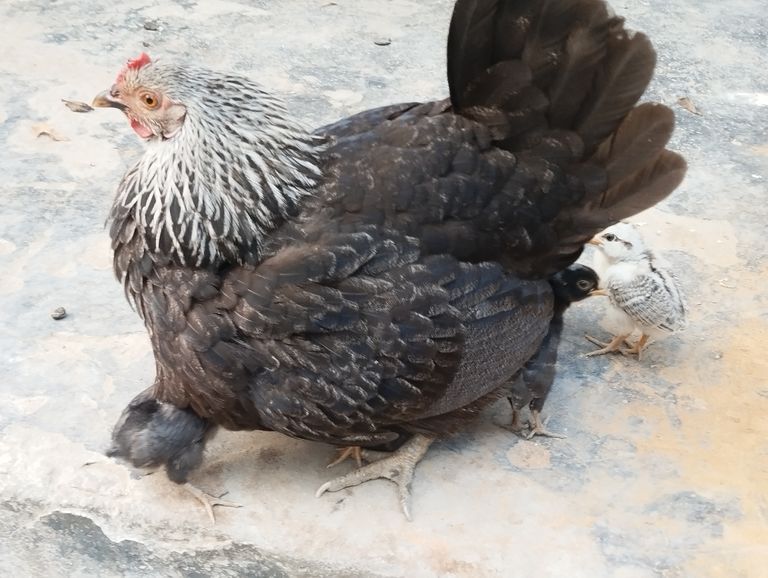
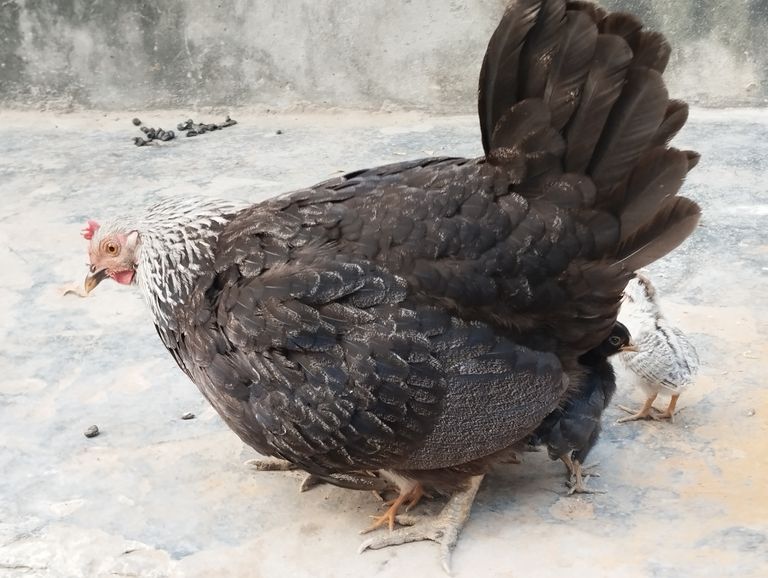
Health Benefits of Eating Desi Chicken Meat
Desi chicken, also known as native or country chicken, is a popular choice for those who prefer organic and naturally raised poultry. Unlike commercially farmed broiler chickens, desi chickens are raised in free-range environments and fed natural food sources, making their meat healthier and more nutritious. In this blog, we will explore the various health benefits of consuming desi chicken meat and why you should consider adding it to your diet.
- Rich in High-Quality Protein
Protein is an essential nutrient required for muscle growth, tissue repair, and overall body function. Desi chicken meat is an excellent source of high-quality protein that helps in muscle development, boosts metabolism, and provides sustained energy. The protein in desi chicken is also easily digestible, making it an ideal choice for people of all ages.
- Lower Fat Content Compared to Broiler Chicken
One of the major health benefits of desi chicken meat is its lower fat content. Since desi chickens are raised naturally and get ample physical activity, their meat is leaner compared to broiler chickens. This makes it a healthier option for those who want to reduce their fat intake while still enjoying delicious and nutritious poultry.
- Packed with Essential Nutrients
Desi chicken meat is rich in several vital nutrients that contribute to overall health. Some of the key nutrients include:
Iron: Helps prevent anemia and boosts red blood cell production.
Zinc: Strengthens the immune system and promotes wound healing.
Phosphorus: Supports strong bones and teeth.
Vitamin B12: Essential for brain health and nerve function.
The natural diet and lifestyle of desi chickens enhance the nutritional value of their meat, making it a powerhouse of essential vitamins and minerals.
- Boosts Immunity and Fights Infections
Desi chicken meat contains natural antioxidants and essential amino acids that help strengthen the immune system. It is particularly beneficial for people recovering from illness, as it aids in faster healing and provides energy. Traditional chicken soup made from desi chicken is often recommended for colds and flu due to its immunity-boosting properties.
- Aids in Weight Management
If you are looking to maintain a healthy weight or lose excess fat, desi chicken meat can be an excellent addition to your diet. Its high protein content helps you feel full for longer, reducing unnecessary cravings and promoting better portion control. Additionally, the lower fat content helps in managing calorie intake effectively.
- Better Taste and Texture
Many people prefer desi chicken over broiler chicken due to its superior taste and texture. The meat of desi chicken is firmer, more flavorful, and has a natural aroma that enhances the overall eating experience. Since it is free from artificial growth hormones and antibiotics, the taste is more authentic and organic.
- No Harmful Antibiotics or Hormones
One of the biggest concerns with commercially raised broiler chickens is the excessive use of antibiotics and growth hormones, which can have negative effects on human health. Desi chickens, on the other hand, are raised in a more natural environment without harmful chemicals, making their meat a much safer and healthier option.
- Improves Heart Health
Eating desi chicken meat in moderation can be beneficial for heart health. Since it contains less saturated fat and cholesterol compared to broiler chicken, it helps maintain healthy cholesterol levels and reduces the risk of cardiovascular diseases. Additionally, the presence of essential fatty acids like omega-3 supports heart health.
- Supports Brain Function and Mental Health
Desi chicken meat is rich in essential vitamins and minerals that contribute to brain function and mental well-being. Vitamin B12, omega-3 fatty acids, and other nutrients in desi chicken support cognitive health, enhance memory, and reduce the risk of neurodegenerative diseases. Regular consumption can also help improve mood and reduce stress levels.
- Enhances Skin and Hair Health
The high protein and nutrient content in desi chicken meat play a vital role in maintaining healthy skin and hair. Collagen, an important protein found in chicken, helps improve skin elasticity and keeps it youthful. The essential amino acids and vitamins also promote strong and shiny hair.
How to Include Desi Chicken in Your Diet
To maximize the health benefits of desi chicken, here are some ways you can include it in your diet:
Grilled or Roasted Chicken: A healthy and delicious way to enjoy desi chicken.
Chicken Soup: Boosts immunity and provides warmth during cold weather.
Chicken Curry: A traditional and flavorful way to prepare desi chicken.
Chicken Salads: A nutritious and protein-rich meal option.
When cooking desi chicken, try to use minimal oil and avoid deep-frying to keep it as healthy as possible.
Desi chicken meat is a highly nutritious and delicious option that offers numerous health benefits. From being a rich source of high-quality protein to boosting immunity and supporting heart health, it is an excellent addition to a balanced diet. Unlike commercially farmed broiler chickens, desi chickens are raised in natural conditions without harmful chemicals, making their meat a safer and healthier choice. If you want to enjoy the authentic taste and superior nutritional value of chicken, opt for desi chicken and reap its amazing health benefits! Would you like to know some specific desi chicken recipes? Let me know.
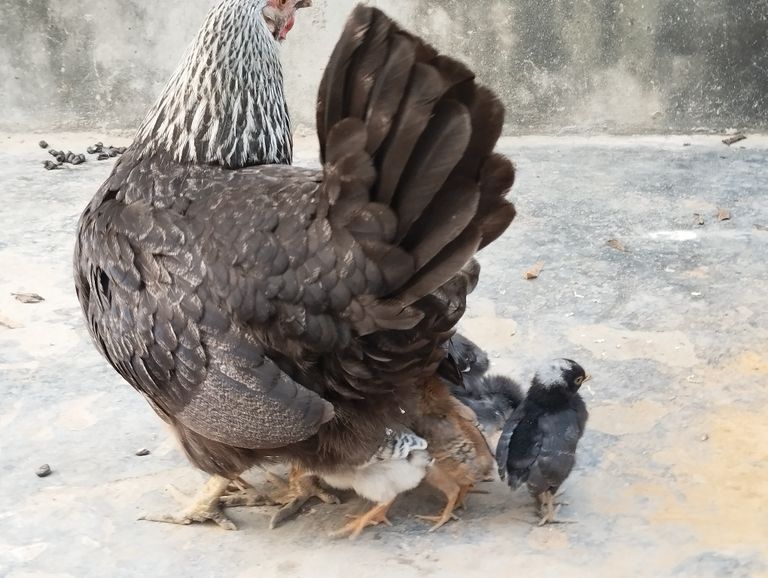
Common Diseases and Health Issues in Native Chickens
Native chickens, also known as desi or backyard chickens, are known for their resilience and adaptability. However, they are still vulnerable to various diseases and health issues. Proper knowledge of these diseases, their symptoms, prevention, and treatment can help poultry farmers and backyard chicken keepers maintain a healthy flock. This blog provides a detailed overview of the common diseases affecting native chickens and the best practices to prevent and manage them.
- Viral Diseases
a. Newcastle Disease (Ranikhet Disease)
Cause: Newcastle disease virus (NDV)
Symptoms:
Sudden death in chickens
Respiratory distress (coughing, gasping, nasal discharge)
Twisting of the neck (torticollis)
Paralysis and loss of balance
Greenish diarrhea
Prevention & Treatment:
Regular vaccination is essential.
Proper biosecurity measures should be maintained.
No specific treatment is available, but supportive care may help affected birds.
b. Infectious Bursal Disease (Gumboro Disease)
Cause: Infectious Bursal Disease Virus (IBDV)
Symptoms:
Swelling of the bursa of Fabricius
Loss of appetite and depression
Watery or white diarrhea
Weakness and ruffled feathers
Prevention & Treatment:
Vaccination is the best prevention method.
Keep the coop clean and disinfected regularly.
There is no specific treatment; supportive care helps reduce mortality.
c. Avian Influenza (Bird Flu)
Cause: Avian Influenza Virus (AIV)
Symptoms:
Sudden death without prior symptoms
Swelling of the head, neck, and eyes
Purple discoloration of the comb and wattles
Respiratory issues, including sneezing and coughing
Drop in egg production
Prevention & Treatment:
Strict biosecurity measures should be implemented.
Avoid contact with wild birds.
No effective treatment; affected flocks may need to be culled.
- Bacterial Diseases
a. Fowl Cholera
Cause: Pasteurella multocida bacteria
Symptoms:
Swollen wattles and joints
Yellowish or green diarrhea
Respiratory distress
Sudden death in severe cases
Prevention & Treatment:
Vaccination helps prevent the disease.
Antibiotics like tetracycline and sulfa drugs can be used for treatment.
Maintain proper hygiene in the poultry house.
b. Pullorum Disease
Cause: Salmonella pullorum bacteria
Symptoms:
White diarrhea in chicks
Loss of appetite and weakness
Swollen abdomen
High mortality in young chickens
Prevention & Treatment:
Buy chicks from disease-free sources.
Regularly disinfect the poultry area.
Antibiotics like sulfonamides can be used for treatment.
c. Mycoplasmosis (CRD – Chronic Respiratory Disease)
Cause: Mycoplasma gallisepticum bacteria
Symptoms:
Sneezing and nasal discharge
Swollen eyes and face
Reduced egg production
Difficulty breathing
Prevention & Treatment:
Provide proper ventilation in the chicken coop.
Antibiotics like tylosin and tetracycline can help control the infection.
Avoid overcrowding of birds.
- Parasitic Diseases
a. Coccidiosis
Cause: Eimeria parasites
Symptoms:
Bloody diarrhea
Lethargy and reduced feed intake
Droopy wings and ruffled feathers
High mortality in severe cases
Prevention & Treatment:
Keep the litter dry and clean.
Use anticoccidial drugs like amprolium in feed.
Vaccination can help prevent the disease.
b. Worm Infestation
Cause: Roundworms, tapeworms, and other intestinal parasites
Symptoms:
Poor growth and weight loss
Reduced egg production
Diarrhea and weakness
Prevention & Treatment:
Regular deworming is essential.
Provide clean drinking water and food.
Avoid contact with contaminated soil.
c. External Parasites (Mites & Lice)
Cause: Various mites and lice species
Symptoms:
Excessive feather loss
Irritated and itchy skin
Reduced egg production
Restlessness and frequent scratching
Prevention & Treatment:
Dusting birds with insecticidal powder helps control mites.
Regularly clean and disinfect the coop.
Provide dust baths for chickens.
- Nutritional Deficiencies and Other Health Issues
a. Vitamin A Deficiency
Symptoms:
Weakness and slow growth
Swollen eyes and discharge
Pale comb and wattles
Prevention:
Provide vitamin A-rich foods like carrots, greens, and fish oil.
b. Rickets (Calcium & Vitamin D Deficiency)
Symptoms:
Weak and deformed legs
Soft beaks and bones
Reduced egg production
Prevention:
Provide calcium-rich feeds like crushed eggshells and limestone.
Ensure exposure to sunlight or supplement with vitamin D.
c. Fatty Liver Syndrome
Cause: High-fat diet and lack of exercise
Symptoms:
Sudden death due to liver rupture
Obesity in chickens
Reduced egg production
Prevention:
Avoid feeding too much fat and energy-dense foods.
Provide a balanced diet and encourage movement.
Best Practices for Preventing Diseases in Native Chickens
Vaccination: Follow a proper vaccination schedule for common diseases.
Biosecurity: Limit outside contact with your flock to prevent infections.
Proper Hygiene: Clean coops regularly and remove wet litter.
Balanced Diet: Provide a well-balanced diet with vitamins and minerals.
Regular Health Checkups: Observe chickens daily for any signs of illness.
Quarantine New Birds: Always isolate new birds for at least two weeks before introducing them to the flock.
Native chickens are relatively hardy, but they still require proper care to prevent diseases and health issues. By maintaining good hygiene, providing proper nutrition, and following a vaccination schedule, poultry farmers can ensure a healthy and productive flock. Early detection of diseases and timely intervention can help reduce losses and improve overall poultry farming success.
If you keep native chickens, always stay informed about common diseases and best management practices to protect your flock and ensure sustainable poultry farming.
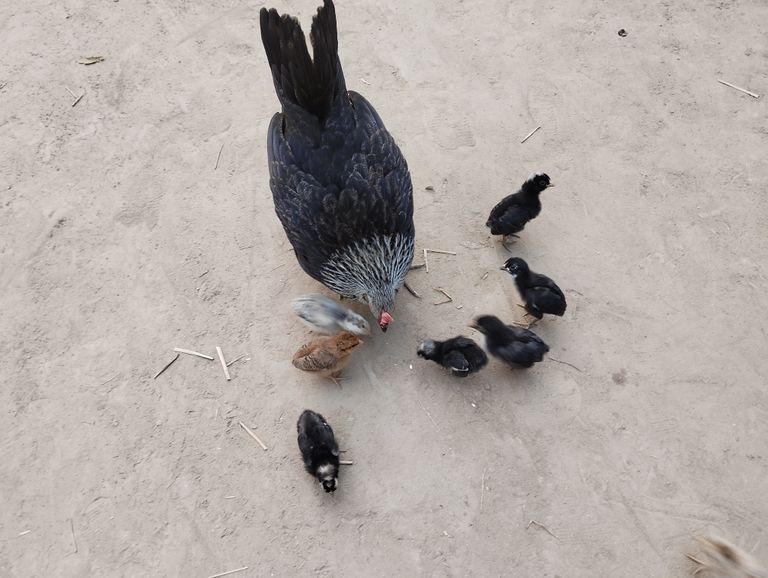
Common Diseases and Health Issues in Native Chickens
Native chickens, also known as desi or backyard chickens, are known for their resilience and adaptability. However, they are still vulnerable to various diseases and health issues. Proper knowledge of these diseases, their symptoms, prevention, and treatment can help poultry farmers and backyard chicken keepers maintain a healthy flock. This blog provides a detailed overview of the common diseases affecting native chickens and the best practices to prevent and manage them.
- Viral Diseases
a. Newcastle Disease (Ranikhet Disease)
Cause: Newcastle disease virus (NDV)
Symptoms:
Sudden death in chickens
Respiratory distress (coughing, gasping, nasal discharge)
Twisting of the neck (torticollis)
Paralysis and loss of balance
Greenish diarrhea
Prevention & Treatment:
Regular vaccination is essential.
Proper biosecurity measures should be maintained.
No specific treatment is available, but supportive care may help affected birds.
b. Infectious Bursal Disease (Gumboro Disease)
Cause: Infectious Bursal Disease Virus (IBDV)
Symptoms:
Swelling of the bursa of Fabricius
Loss of appetite and depression
Watery or white diarrhea
Weakness and ruffled feathers
Prevention & Treatment:
Vaccination is the best prevention method.
Keep the coop clean and disinfected regularly.
There is no specific treatment; supportive care helps reduce mortality.
c. Avian Influenza (Bird Flu)
Cause: Avian Influenza Virus (AIV)
Symptoms:
Sudden death without prior symptoms
Swelling of the head, neck, and eyes
Purple discoloration of the comb and wattles
Respiratory issues, including sneezing and coughing
Drop in egg production
Prevention & Treatment:
Strict biosecurity measures should be implemented.
Avoid contact with wild birds.
No effective treatment; affected flocks may need to be culled.
- Bacterial Diseases
a. Fowl Cholera
Cause: Pasteurella multocida bacteria
Symptoms:
Swollen wattles and joints
Yellowish or green diarrhea
Respiratory distress
Sudden death in severe cases
Prevention & Treatment:
Vaccination helps prevent the disease.
Antibiotics like tetracycline and sulfa drugs can be used for treatment.
Maintain proper hygiene in the poultry house.
b. Pullorum Disease
Cause: Salmonella pullorum bacteria
Symptoms:
White diarrhea in chicks
Loss of appetite and weakness
Swollen abdomen
High mortality in young chickens
Prevention & Treatment:
Buy chicks from disease-free sources.
Regularly disinfect the poultry area.
Antibiotics like sulfonamides can be used for treatment.
c. Mycoplasmosis (CRD – Chronic Respiratory Disease)
Cause: Mycoplasma gallisepticum bacteria
Symptoms:
Sneezing and nasal discharge
Swollen eyes and face
Reduced egg production
Difficulty breathing
Prevention & Treatment:
Provide proper ventilation in the chicken coop.
Antibiotics like tylosin and tetracycline can help control the infection.
Avoid overcrowding of birds.
- Parasitic Diseases
a. Coccidiosis
Cause: Eimeria parasites
Symptoms:
Bloody diarrhea
Lethargy and reduced feed intake
Droopy wings and ruffled feathers
High mortality in severe cases
Prevention & Treatment:
Keep the litter dry and clean.
Use anticoccidial drugs like amprolium in feed.
Vaccination can help prevent the disease.
b. Worm Infestation
Cause: Roundworms, tapeworms, and other intestinal parasites
Symptoms:
Poor growth and weight loss
Reduced egg production
Diarrhea and weakness
Prevention & Treatment:
Regular deworming is essential.
Provide clean drinking water and food.
Avoid contact with contaminated soil.
c. External Parasites (Mites & Lice)
Cause: Various mites and lice species
Symptoms:
Excessive feather loss
Irritated and itchy skin
Reduced egg production
Restlessness and frequent scratching.